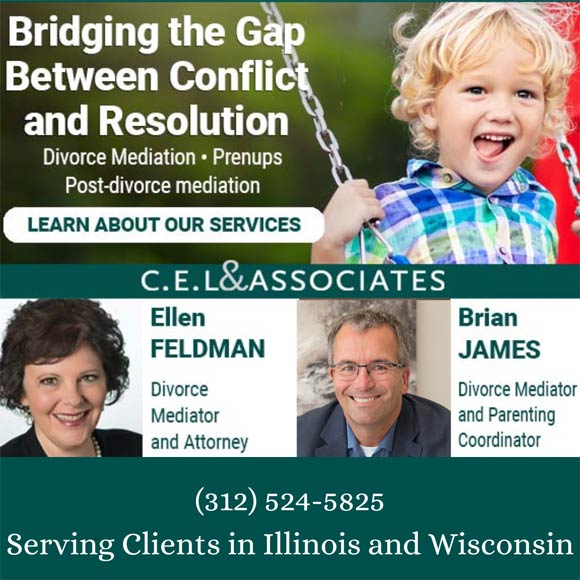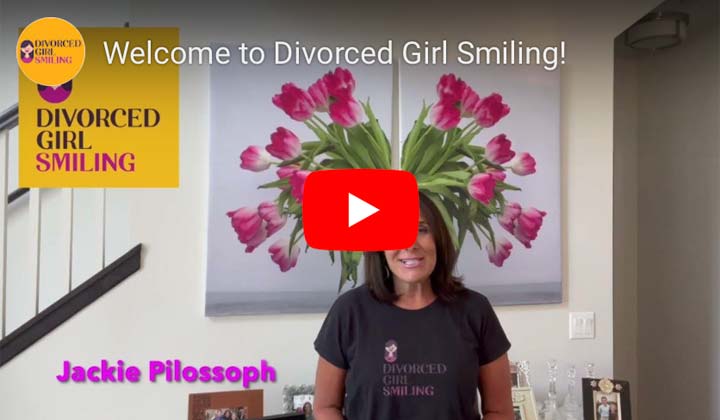What is Empathy and why is it Important?
What is empathy and why is it important? As a Divorce Mediator, my role as a neutral is to help my clients reach good parenting and financial agreements, agreements that are in their children’s best interests and equitable for both parties. Ideally, both parties are on the same page and reaching agreements is straightforward, as they are working together as a team and want to make good agreements for their family.
Unfortunately, almost always, one spouse is angry or has been given advice that is not collaborative in nature, which makes coming to an agreement more challenging. This is where empathy can truly be helpful. When parties hit an impasse, this is when a Divorce Mediator’s skills are put to the test. In my professional opinion, one of the most important skills is the ability to empathize with my clients.
Simply put, empathy is the ability for someone to understand and share the feelings of another and to see things from that person’s perspective. This skill is critical when helping divorcing clients get unstuck when they reach a roadblock on any one of a number of agreements they are required to come to in order to get divorced.
When I talk about empathy with my clients, I try to help them to see each other’s perspective and why they are saying what they are saying at that exact moment. Having that foresight is crucial in a divorce mediation setting. Why? Because if you understand the reasoning behind why your ex says something or feels a certain way, you might feel less angry and less offended, and you might shift to feeling empathy for your ex or realizing something you did that might have hurt him or her. This helps take away those barriers and opens the door for resolution.
Though most people have the ability to empathize, there are some people who cannot, or who cannot empathize enough, which makes mediation much more challenging. People who lack the ability to be empathetic are thinking more about themselves, and what was done to them. They have a hard time putting themselves in the other person’s shoes and tend to be more self-focused. They think more about “what I would have done,” versus what made the other person do what they did.
Being empathetic doesn’t mean forgiving someone who cheated, or who was mean to you, or who divorced you to marry someone else. It doesn’t mean forgetting what happened. Empathy means trying to understand why the person did what he or she did. Because if you understand it, you might realize it wasn’t so personal. It wasn’t about YOU, it was about the other person. That understanding helps you let go of anger and gain acceptance.
Although a divorce mediator’s role is to help clients reach the agreements necessary to obtain a divorce, and keeping emotions out of the process would be ideal, that is not reality. I see my role as more than that, as I want to see my clients finish the mediation process in a better place emotionally than when they started.
If my clients have children, I want them to be able to co-parent for the rest of their lives having learned the communication skilled they learned in my mediation sessions, and without resentment, bitterness and perpetual anger. Unfortunately, some people are so bitter and angry, this is not possible. Sadly, it is always the children who suffer the most when parents are unable to co-parent, compromise and discuss what is in their children’s best interests.
Pertinent to empathy, there are five stages of grief – denial, anger, bargaining, depression and acceptance. Acceptance is the key in helping clients reach good agreements and remain good co-parents for the rest of their lives. Clients will ask me how I can empathize with them since I am not divorced, which is a very valid question that I answer this way: “Though I have never been divorced and am happily married with two sons, I have been working in this industry for the past 30 years and have seen firsthand grief on so many levels”.
I also validate their grief and let them know that grief is a normal reaction as part of a divorce. Divorce is the second most emotionally charged time in someone’s life, with many emotions coming out during a divorce mediation session. In one two-hour session, my clients may be crying, yelling, laughing, swearing, telling jokes, reaching agreements or coming to an impasse on an issue that requires more work.
A divorce mediator skilled in empathy will use those emotions to help their clients come to agreements.
As stated above, divorce is the second most emotional time in someone’s life, with the first being the loss of a child. No matter how good someone is at empathy, you can never truly 100% empathize with someone unless you have “walked in their shoes, which I cannot as I have never been divorced. Sadly, the reason I am writing this article and discussing empathy is because I recently experienced every parent’s worst nightmare when my wife Cindy and I lost our son Connor who passed away on June 24, 2023 from an accidental drug overdose. Connor’s death has broken us in ways we cannot express in words.
Though I try to find the good in everything and everyone, even when it is difficult with my clients, there is no good to be found in his death, only eternal sadness and pain. I am currently in therapy to process Connor’s death and will likely be for some time. I am nowhere close to acceptance but I am slowly working my way through the stages of grief.
I am a huge proponent of therapy, especially when my clients are “stuck” in the divorce process, unable to come to agreements, refuse to compromise or budge on a certain topic because they have yet to process the fact they are getting divorced.
Clients are often at different places emotionally in terms of wanting or agreeing to the divorce. When I recommend therapy to a client, I am now able to empathize even more than I was in the past with those intense, painful feelings. I also have a better ability to help them process when they are stuck and when they feel unable to move forward. Empathy is understanding, which is key to helping my clients get to a better place.
Though my pain and sadness are unexplainable and only those who have lost a child can truly understand how I am feeling, I want to believe things will get better over time. This is something I want for all my clients.
I believe it takes true empathy to help people going through a divorce get unstuck and reach good agreements even when things look bleak. Everyone experiences tragedy, and every story is unique. Divorce is a tragedy. My tragedy is Connor. But his death will not define me, just as getting divorced should not define anyone .
This article is the first time I have written about Connor’s death, and the reason I chose to do so is because it is therapeutic for me to try to help others through my tragedy. But, as I’ve always been, I am dedicated to helping my clients not only reach the agreements necessary to get divorced, but to get them to a healthier place mentally and emotionally by the time they are done with mediation, so that they can live a happy, healthy, peaceful life post-divorce I will always love you Connor.

Brian James has been a divorce mediator since 2005. A graduate of Northern Illinois University, Brian completed Northwestern University’s training in mediation and conflict resolution. Prior to becoming a mediator, Brian spent 10 years working in the criminal justice system helping victims of domestic violence, as well as divorcing couples and their children. Learn more by visiting the C.E.L. & Associates website.



